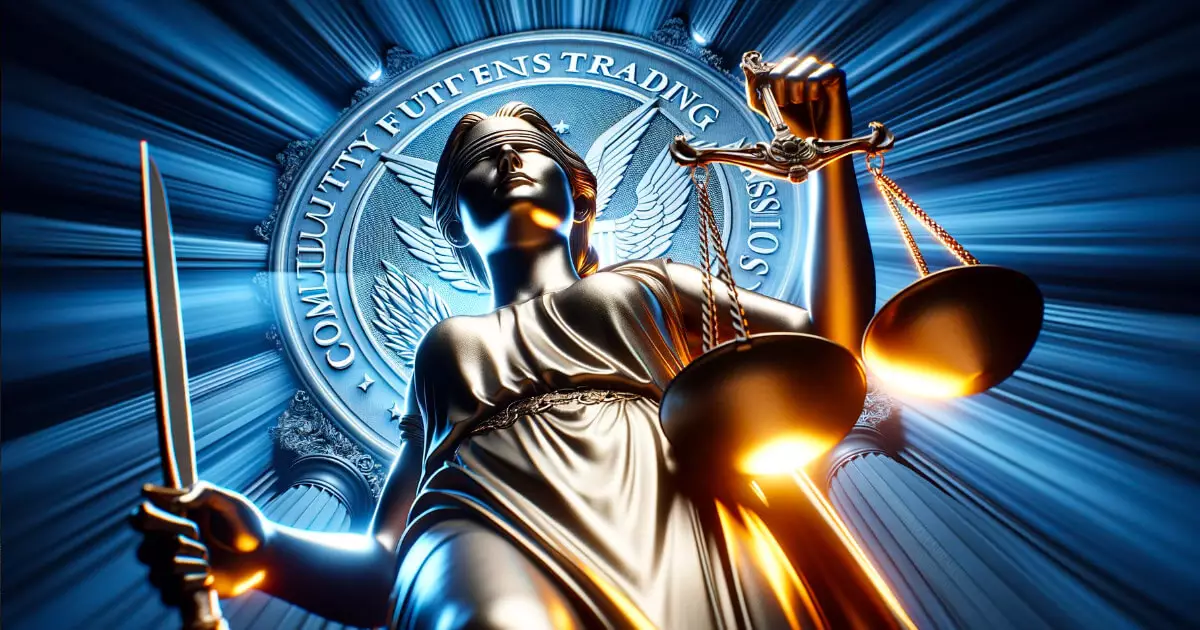Coinbase, one of the largest cryptocurrency exchanges in the United States, recently revealed that it has been subpoenaed by the U.S. Commodity Futures Trading Commission (CFTC). The nature of the investigation remains unknown, but Coinbase stated that it has been asked to provide information about its users’ accounts and transaction activity. This development has sent shockwaves throughout the cryptocurrency industry, raising questions and concerns among investors and traders.
Speculations have emerged suggesting a potential connection between Coinbase’s subpoena and rival platform Bybit. Observers have theorized that the CFTC’s investigation may stem from attempts to determine if Bybit has U.S. users. Alice Comfy, the Chief Investment Officer of Shinoji Research, suggests that the subpoena could be a way for the regulators to ascertain if Bybit has been serving U.S. customers. If this is the case, Bybit may find itself facing similar actions taken against Binance and BitMEX by the CFTC.
Bybit, a cryptocurrency exchange founded in 2018 and headquartered in Dubai, has already faced scrutiny for its operations. The exchange claims to have over 15 million users worldwide but explicitly states that it does not serve restricted markets such as the U.K. and the U.S. However, the connection between Coinbase’s subpoena and Bybit’s alleged tolerance of U.S. users could potentially spell trouble for the exchange.
The CFTC’s investigation into Coinbase and its potential link to Bybit raises concerns about the regulatory landscape for the cryptocurrency industry. Federal agencies, including the CFTC, the Department of Justice (DOJ), and the U.S. Treasury, have been actively pursuing regulatory actions against crypto-related firms. Just last week, Binance, one of the world’s largest cryptocurrency exchanges, agreed to a settlement of over $4 billion with the U.S. authorities. This enforcement action, which led to the resignation of Binance’s CEO, Changpeng Zhao, after pleading guilty to money laundering charges, marks a significant step towards increased scrutiny and regulation within the industry.
Key figures in the cryptocurrency industry, including Coinbase CEO Brian Armstrong and Kraken co-founder Kraken Powell, have voiced their opinions on these regulatory actions. They argue that such enforcement actions, while potentially disruptive, will ultimately bring more stability and credibility to the emerging industry. This perspective suggests that increased scrutiny and regulation will weed out bad actors and allow legitimate players to thrive.
The CFTC’s subpoena of Coinbase and its potential connection to Bybit exemplify the ongoing regulatory challenges faced by the cryptocurrency industry. As the industry continues to grow and evolve, it becomes increasingly important for exchanges and platforms to comply with regulatory guidelines. While this development may introduce short-term uncertainty and turbulence, it ultimately contributes to the long-term sustainability and legitimacy of cryptocurrencies. As the industry matures, it is crucial for investors, traders, and industry leaders to navigate these regulatory hurdles effectively and ensure the growth and success of the cryptocurrency market.

